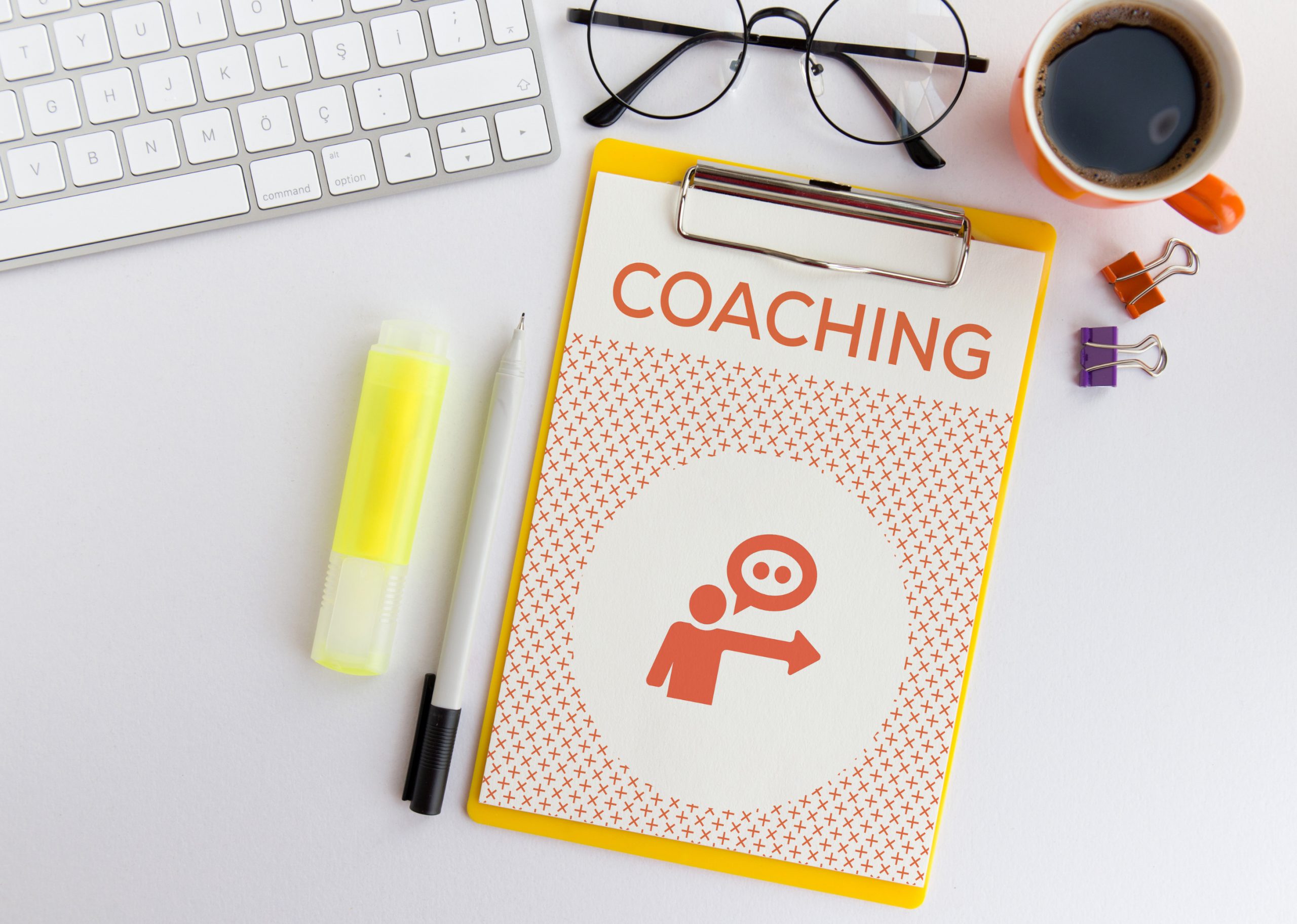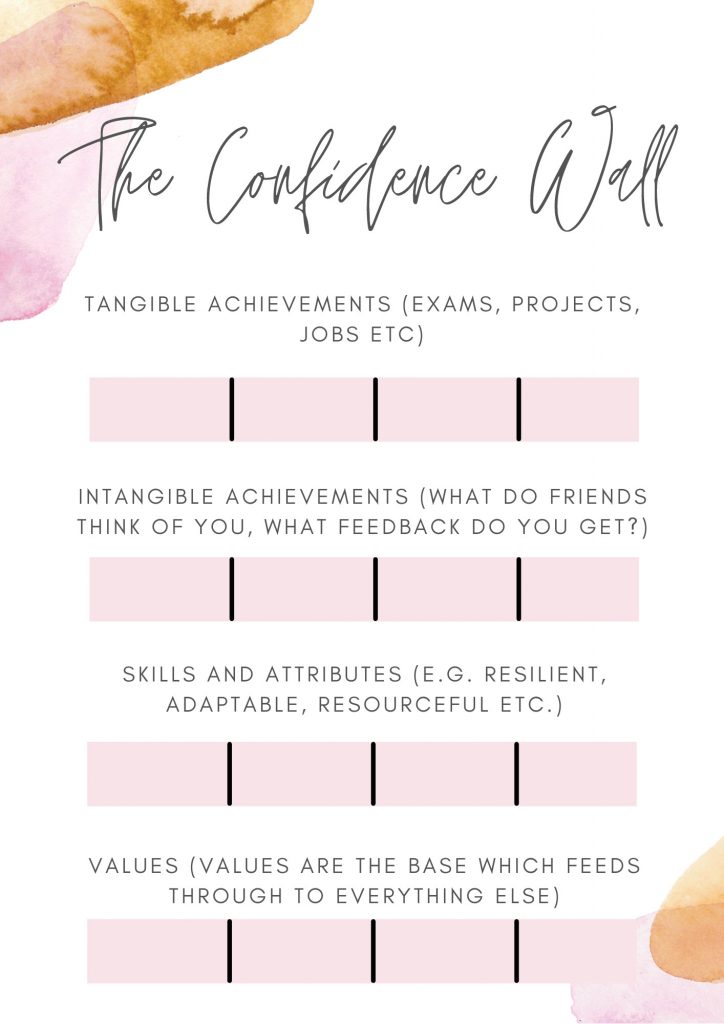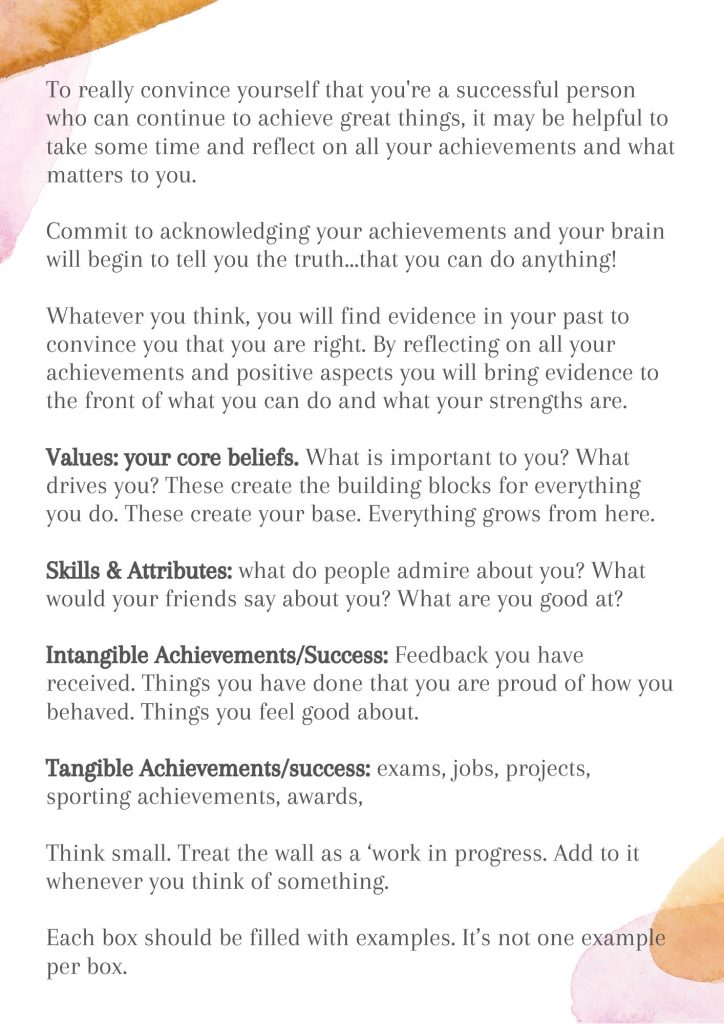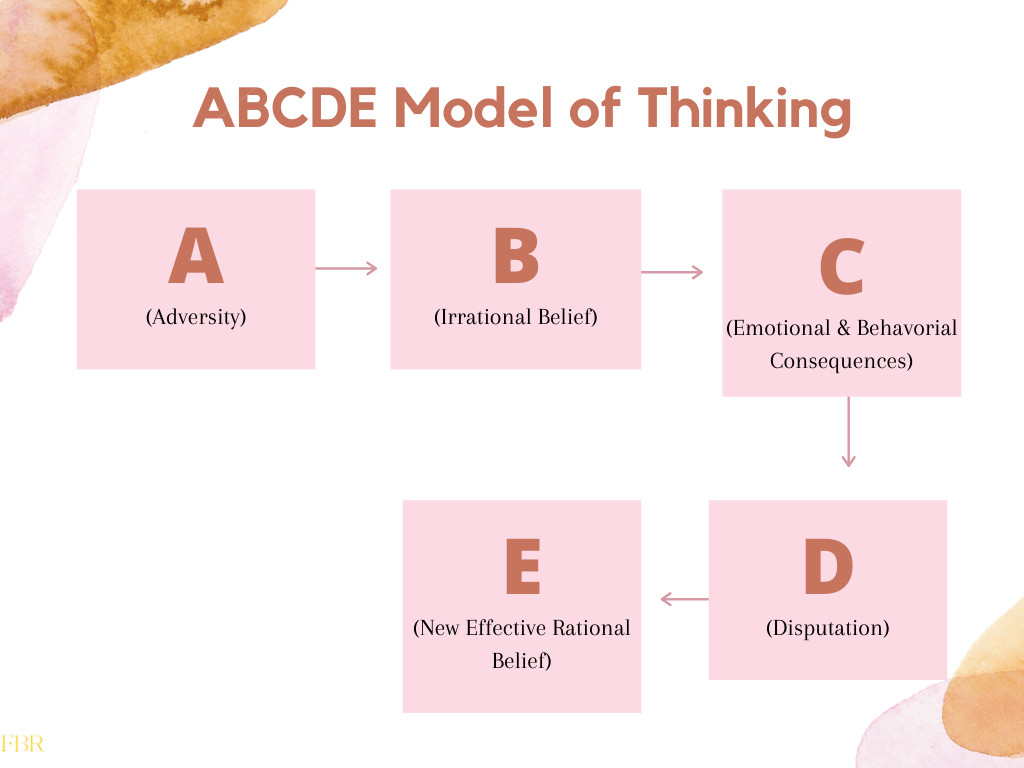Self Esteem Coaching: Meaning, Certifications and More
Self Esteem Coaching is a significant core concept in the field of Life Coaching.
The concept is so integral that it has opened up an entire practice dedicated to encouraging and building self-esteem.
Earlier, low self-esteem was to be found mostly in teenagers and young adolescents.
However, nowadays in the digital age of social media and trends, children and adults have fallen prey to the locus of low self-esteem.
It might be due to the unrealistic expectations of the family, the group of friends you are hanging around with or the social media trends and norms you are striving to follow.
Failing to reach and fit into a particular class can result in discouragement, fear and loneliness sum up to a gradual decline in your self-esteem.
Self-Esteem Coaches assist you in moving through this phase by helping you incorporate and practice self-discovery, self-love, confidence and realising your worth.
In this article, we bring you an ultimate guide about everything you wish knowing about self esteem coaching, types of self-esteem, certifications, tools, strategies and more.
What is Self-Esteem?
Self-Esteem is the formation of our own subjective opinion about ourselves.
In other words, Self-Esteem is a personality trait that describes what a person’s self-worth is and what personal value they hold.
It is affected by a lot of factors.
Childhood experiences are one of the major factors, for instance.
If you were praised and encouraged in your childhood, there are chances that you may develop high self-esteem.
However, if you were discouraged and constantly criticised, you may tend to develop low self-esteem in the longer run.
Likewise, striving to reach up to society’s unrealistic expectations is one of the common factors for low self-esteem.
Society has made up norms about what kind of body shape you must have, what kind of profession you must opt for, what kind of lifestyle you must live, etc.
Social media trends can either have a positive or negative effect on you.
What remains common is the effect on your mental and behavioural health.
Self-Esteem is the way we see ourselves.
We perceive a certain worth about our personality, our appearance, behaviour, lifestyle and career.
This worth about yourself in your own eyes decides your self-esteem.
Self-appreciation, confidence and self-love are one of the stepping stones towards building high self-esteem.
Types of Self-Esteem
Technically speaking, self-esteem is classified into two categories.
These are High Self-Esteem and Low Self-Esteem.
Let us understand the difference between them.
High Self-Esteem
The situation of High Self-Esteem arises when you think positively and worthy of yourself.
You value yourself and believe that you are a positive contributor to this world.
This does not entirely mean that you may not identify your weaknesses.
High Self-Esteem is the state when you believe in yourself, accept yourself for who you are and at the same time, understand your weaknesses.
You will then keep a positive outlook towards things and realise your potential.
This helps you improve yourself and achieve your goals.
Low Self-Esteem
The situation of Low Self-Esteem arises when you think negatively about yourself.
This means that you are constantly criticising yourself.
You fear failing and are constantly insecure about your appearance, abilities and personality traits.
There is a lack of self-acceptance which might cause stress or unhappiness.
With this comes an abundance of anxiety, loneliness and at the worst, depression.
This type of self-esteem is linked to low confidence levels and feeling incompetent.
In the book, Extending Self Esteem Theory and Research by Cambridge University Press, researches have written about people with low self-esteem who are extremely hypersensitive and easily affected by the opinions of others.
A fragile shield that tends to create around them is easily hurt and wounded by others around them.
Linking Narcissism and Self Esteem
Most of the psychologists have added another type of self-esteem which they like to call ‘Inflated Self Esteem’.
This type of self-esteem is when you are extremely obsessed with yourself and at the same time, tend to look down upon others.
Constantly bragging about one’s own achievements, boasting about their wealth and praising oneself extensively are some of the signs of Inflated Self Esteem, or Narcissism.
Occasionally, Inflated Self Esteem is confused with possessing high self-esteem.
However, they are different from each other in their outcomes.
High Self Esteem teaches you self-acceptance and that comes with accepting yourself as a whole; along with all your flaws and weaknesses.
Whereas Inflated self-esteem is remaining in a bubble of false security and acceptance of yourself and to cover your flaws and weaknesses, you boast and praise yourself.
Scientific American suggests that self-esteem must be built in the healthiest way possible that allows you to grow and accept yourself as well as recognize your potential.
Living in a bubble of false acceptance, hiding your weaknesses from yourself and underestimating everyone else by thinking you are the best will only develop negative thinking.
Narcissists and people belonging to the Inflated Self Esteem type often have a tough time building healthy relationships.
What is Self Esteem Coaching?
Self Esteem Coaching is the conditioning undertaken to understand:
- the block that is hurdling your way due to past experiences
- helping you overcome the block
- gradually improve your self-esteem
- maintain the same in the longer run
A self-esteem coach is learned and experienced professional who possesses the tools and techniques required to help you realise and improve your self-worth.
Not only this, but they also assist you in eliminating any kind of block that comes in the form of childhood trauma, failing relationships, ongoing stress and more.
Self Esteem Coaching is an element of Life Coaching.
The techniques followed in this type of coaching is talk-listen therapy where the coach communicates effectively and tries to eliminate your mental blocks.
Your coach will try to diagnose the mental block which is causing low self-esteem and strategically prepare the therapy plan.
Self Esteem Coaching is not a speedy therapy.
It requires a reasonable amount of time for gathering maximum information, fixing regular therapy schedules and gradually developing strategies.
Stepping into the Field of Self Esteem Coaching
Looking to step into this field of self esteem coaching?
You’re in luck!
According to the Self-Esteem Book written by Dr Joe Rubino, 80-85% of the world population are influenced by low self-esteem.
This opens up a platform to step in and offer help to people who want to reach their goals, want to gain confidence and be more self-acceptable.
How to Become a Self Esteem Coach and Get High-End Clients
Self Esteem Coaching does require certifications and skills to cater to clients with various backgrounds.
Some of the qualities that are required to be a Self Esteem Coach are as follows:
- Profound and attentive listening skills
- Excellent communication skills
- Relationship building skills
- Strategic process of conversing and asking accurate questions
- Analysis and critical thinking skills
- Patience and composure
- Determination and the quality of never giving up on your client
- Creating a positive situation even at the most earnest moments
- Time management and organisation skills
- Paying attention to details and finally,
- Self Confidence and reliability
Responsibilities of a Self-Esteem Coach
As a coach, you’ll be bound with significant day to day responsibilities. Some of these are listed below:
- Prepare the client’s file along with medical history, ongoing medications (if any), psychological history and vital details.
- Identify the cause of low self-esteem. This can be related to any disruptive situations in childhood, personal relationships, work-related stress, bullying or other factors.
- Guide clients through the process of self-discovery and self-recognition
- Ask right and accurate questions.
- Gain their confidence and trust in order to build a strong personal relationship
- Be friendly and welcome them with a smile
- Always create a non-judgemental space for them to talk
- Maintain records and track their progress
- Plan strategies and sessions in advance
Always identify the client’s current state of self-esteem and accordingly organize a strategy that may help them.
Reassure them. Let them know at each and every stage that they are worth it.
Consult them to dive deep within and discover themselves.
The art of communication and convincing is extremely important in this profession.
You, as a Self Esteem Coach, must be very clear about the strategies that you choose for your clients.
Benefits of Being a Self Esteem Coach
Being a certified Self Esteem Coach comes with rewarding benefits.
The primary motive to honour someone else’s life and help them realise their potential provides you with the confidence to change people’s lives in the most extraordinary ways.
Apart from granting this wonderful feeling of gratefulness and satisfaction, the benefits of being a Self Esteem Coach are explained below:
1. Flexible Working Hours
The best part about working as a Self Esteem Coach is that you can work from anywhere.
Yes, that’s right!
Be it work from home providing virtual sessions, online courses or managing your business or working in an office space, you can work from anywhere.
You can provide the resources and attend to your clients in any manner that suits your lifestyle.
You can also manage your work timings in a way by opting to coach part-time or full-time.
2. Scope of Developing Skills
Once you have completed your training and certifications, as a Self Esteem Coach, you have opportunities to develop your skills and recognise your abilities.
As a practitioner, you will be dealing with various types of clients who have a different background, different needs and different goals.
All kinds of clients must be dealt with in a separate, unique way.
This offers you a great learning experience throughout your career and enhances your abilities to listen, coach, guide and communicate.
Moreover, Self Esteem Coaching cannot be learnt only through books and research papers.
With experience and practical knowledge, you’ll be able to recognise and build up your own skillset.
3. Continuous Learning Experience
Did you know that your education and knowledge on being a Self Esteem Coach does not end when you have gained your certification?
Of course, there are more comprehensive opportunities to continue building up your resume and pursue extensive courses in the related field.
It’s always better to recommence your academic knowledge and gain immense awareness about the trends, causes and research in the field of psychology which can ultimately aid in preparing strategies.
The good news is that Self Esteem Coaching is flexible that way.
You can always take up a part-time diploma or training courses which will eventually benefit you in the long run.
Self Esteem Coach Certifications and Training
Even though no specific training and certifications are required to become a Self Esteem Coach, it’s always favourable to undergo some courses and programmes.
This adds value to the service you’re offering and paves your way to get high-end clients by ensuring that they are opting for the learned and qualified coach.
You require training and certifications to also legalise your business and acquire a permit as a practitioner.
If you’re looking to secure and attain a good employment package from a school, clinic or a fitness centre, certifications add considerable value to your resume.
Some of the globally renowned and certified self esteem coaching courses are as follows:
1. Udemy-Transformation Academy
Transformation Academy has created a 6-hour virtual course on Confidence Coaching Certification.
This course is for all those who are (or want to be) Life Coaches, existing Self Esteem Coaches, counsellors and anyone who wants to enhance their knowledge about psychology.
What you will learn from this course:
This course offers a vast syllabus that includes:
- Developing self-esteem tools and techniques
- Step by step strategies for clients to overcome insecurity and self-doubt
- Gain extensive knowledge about the concepts of self-esteem and confidence
- Help clients achieve self-acceptance and practice self-love
- Understand the growth mindset
- Developing awareness and problem-solving skills as a coach
Course Fee
The course fee is $14.99 which includes all the downloadable resources, printable notes and video lectures.
Certification
Upon completion of the course, you’ll receive a course completion certificate by Transformation Academy which is internationally accredited by the Continuing Professional Development Standards Agency (CPD Standards).
2. Rhodes Wellness College
Rhodes Wellness College offers an online Life Coaching Certification of 21 weeks divided into 6 hours of class every week.
The course can be taken a part-time or on-campus in Vancouver.
This course is for anyone looking to commence a career in Life Coaching or existing Self Esteem Coaches wanting to upgrade their skill set.
What you will learn from this course:
This course involves the 11 core competencies recommended by the International Core Federation (ICF).
Some of the subject matters this course will teach you are:
- Effective use of words and phrases for empowering and motivating clients
- Essentials of career-building; requirements, licenses and agreements
- Build connections and relationships with clients in the long run
Course Fee
The total tuition fee of this course is $4,750 which includes video lectures and hands-on practical activities.
Certification
Upon completion of this course and clearing the exam, you’ll receive a course completion certificate which is accredited by the Private Training Institutions Branch in British Columbia.
3. Self Confidence Coaching Certification Programme by Dr Joe Rubino
Dr Joe Rubino is one of the most popular and knowledgeable accomplished Self-Esteem Coach.
He’s offering a Self Confidence Coaching Course for anyone who wants to begin a career in this field.
This course allows you to build your own self-confidence while mastering the techniques of motivation and increasing your client’s self-esteem.
It’s a 3-week online course comprising personalised e-books, workbooks and videos.
What you will learn from this course:
This course literally starts from the basics of self-confidence and gradually elevates to grasping hold on to your confidence and self-esteem first before going forth and counselling others.
Some of the key subsets you may learn in this course are:
- Developing wellbeing and self-confidence
- Tips and techniques to self-acceptance overcoming self-doubt
- Building trust in personal relationships
- Easy techniques to make sure you are being heard
Course Fee
The course fee is $49 for the entire 3 weeks; academic resources included.
Certification
There will be a multiple-choice question examination held which is mandatory to pass in order to earn the completion certificate of Certified Self Confidence Course. It’s recognised and accredited by The Center for Personal Reinvention.
There are a bundle of other courses on the internet which offer short-time courses of 6-12 hours as well as long time courses that run for a few weeks or months.
There are various certification courses which are pocket-friendly and have flexible timings.
However, it’s recommended to opt for prestigious certifications to benefit your career as well as your own reputation as a Self Esteem Coach.
Self Esteem Coaching Tools
As a Self Esteem Coach, you have the power to help your client to enhance their self-esteem.
Coaching tools and methods help strengthen your client’s progress, keep track of the developments they’re making and the areas of improvement.
They ultimately help accomplish your client’s individual goals.
Coaching tools are client-oriented and contribute greatly during the sessions and create an environment of peace and positivity.
These coaching tools include you as a conciliator.
Here are a few tools that you may use with your clients:
1. Self Confidence Assessment Tool
This particular tool involves a set of questions for the client during the talk-therapy sessions.
The questionnaire can be filled by you or by your client.
Some of the questions in your questionnaire can be answered in the form of ‘yes’, ‘no’ or ‘sometimes’ along with offering option variations such as:
- I feel positive and energized about life
- I handle situations in a calm and composed manner
- If a task looks difficult, I avoid attempting it
- I receive positive feedback if I accomplish my task
- I like to make contacts with people of similar interests as me
You can find more examples of such questionnaires at Mind Tools.
2. The Autobiography Tool
This coaching tool is something Self Esteem Coaches are often advised to use during the first few sessions.
As the name suggests, an autobiography is a self-written narrative of a person’s life.
This tool focuses on the exact same rationale.
This tool (or exercise) allows a bond to be created between you and your client.
Both you and your client can hear and tell all the important aspects of their life.
Some of the questions you can ask your client are:
- Where were you born?
- What was your childhood like?
- How did you feel about school?
- Was there anyone to guide you when you made your career choice?
The interesting part to note during this activity is to pick out what your client emphasises and what they leave out.
This helps you know your client better and actually read their thoughts and understand their emotions in a better manner.
However, please don’t force your client to answer each and every question.
Stop immediately or change your questions if your client starts feeling overwhelmed, emotional or sensitive.
Don’t make assumptions or interpretations and most certainly, don’t expect the whole truth to come out at once.
This exercise may require regular conduction.
3. The Confidence Wall Tool
This tool works wonders if you’re trying to enhance the self-belief and the assertiveness of your client.
This tool involves acknowledging and reflecting on your achievements in life.
Your client will be asked to fill up a self-directed sheet where they are supposed to write down their achievements up till now.
Achievement does not only mean winning an award from recognised organisations.
In fact, it can be anything from helping out an injured animal or taking care of your diet for a year.
When we acknowledge our achievements and accomplishments in life, we tend to be grateful for those moments.
This works in two ways.
First, it motivates your clients to keep looking at the bright side and try to achieve their goals in life.
Second, self-acceptance and confidence are built which are the stepping stones to achieving high self-esteem.
You can find a sample sheet of the tool here:
4. ABCDE Model of Thinking
This particular model is a subset of Cognitive Behaviour Therapy (CBT).
It helps your clients identify and differentiate realistic situations from assumptions and harmful scenarios.
Sometimes these negative thoughts convince the mind of making up scenarios which are not true and enforces negative emotions in our mind.
This kind of Cognitive Distortions can bring in fear, anxiety and the feeling of helplessness.
This model is designed in a way that a person is self-aware and realises their emotions in a realistic manner.
A stands for Activating an Event
B stands for Beliefs
C stands for Consequences
D stands for Disputes
E stands for Effects
The outcome of successfully implementing this model is that the client will take control of their emotions and be mindful in adjusting their thought’s pattern.
This eventually leads to low amounts of distress and anxiety.
To administer this model, you will be discouraging the 5 step guide to your client.
It is suggested to implement it in one go or if that is not possible, you can dedicate a couple of days to this exercise.
A sample model for implementing this activity and for you to track records of it is available here.
Strategies Used in Self Esteem Coaching
Lack of self-esteem has various symptoms.
It can start from self-hate where you are unable to forgive yourself even for the smallest mistakes.
It brings in problematic behaviours, anger and failing to maintain personal relationships.
You may become a people pleaser or start neglecting your family and friends.
Both these aspects cause a negative circumstance.
When you become a people pleaser, you begin to compromise on your own mental health by putting other people before you.
On the other hand, neglecting and enraging on family and friends leads to toxic or unhealthy relationships.
Then comes the fear of losing people, the loneliness which in worst cases, leads to anxiety and depression.
Self Esteem is more than self-confidence.
It’s a set of self-awareness, self-belief, empathy and learning to value the little things in life.
Self Esteem Coaches are equipped with strategies to help clients overcome low self-esteem issues.
Some of the strategies used by Self Esteem Coaches and the subject matters they focus upon are explained below:
1. Self-Acceptance
Self-acceptance is the awareness of our own strengths and weaknesses along with a rational evaluation of our skills.
This is a subjective topic as it varies from individual to individual.
Self-awareness brings about a sense of self-satisfaction through failures and appreciating oneself during accomplishments.
To accept ourselves in the most positive way, i.e., accepting our goodness, qualities, and attributes is a simple task.
However, to accept our goodness and accomplishments along with our mistakes, failures and weaknesses, is difficult.
Self-acceptance teaches your clients just that.
As a Self Esteem Coach, ask your clients to write down 10 of their strengths and 10 of their weaknesses.
Then, allow them to analyse the list on their own.
Be open to discussions and listen to what your clients want to share.
It may be an incident or just a thought.
Make sure your client writes a note-to-self every day which expresses gratitude and gratefulness to themselves.
This is a simple practice yet, a very effective one.
Once they form a habit to do so, suggest to them to maintain a gratitude journal.
2. Looking Up to Positive Role Models
A role model is someone who inspires, motivates and helps you lead a fruitful life.
Of course, how you choose to live your life entirely depends on you.
However, the people around us can really help on the days we feel low.
The internet and social media of this age are filled with lots of influencers, authors, experienced coaches and many others who set an example to an array of audience.
It is you who have the power to choose who you will be looking up to.
Remember that not all role models can contribute to a healthy and positive mindset.
Some may portray unrealistic expectations which may propel you to confine to those norms.
This drastically affects the way you think about yourself.
A negative association may lead to insecurities and self-hatred which eventually leads to low self-esteem issues.
As a coach, make sure your client is not encircled with negative associations and role models.
Ask your client about their affirmations on following a particular role model and how they are helping them.
3. Imbibing a Positive Body Image
One thing we all suffer from in this digital world is comparing ourselves to models, actors and influencers.
Self-love is compromised when we try to become someone we are not.
To fit into a certain shape leads us to incorporate unhealthy habits in our lives.
For example, losing weight and the desire to fit into a certain body shape may influence us to starve ourselves or skip meals.
This dramatically affects physical and mental wellbeing.
Moreover, the feeling of not being comfortable in your own skin leads to a drop in self-esteem.
Ask your clients to talk to themselves in the mirror every day and say how good they look, how different and unique they are and how grateful they are to be this way.
You may also connect them with a nutritionist if your client is suffering from eating disorders like Bulimia.
4. Incorporating Healthy Relationships
Toxic friends and family leave a harsh impact on our growth and development.
Whether as a child, you have been criticized a lot or as an adult, you continue to face the same issues from your relationships.
Some relationships do not tend to workout because of circumstances and as a result, if you have low self-esteem, you are inclined to face the blame for the failure.
The first step towards avoiding these situations is to analyse the people who are supportive and genuine and the people who are toxic and critical.
As a Self Esteem Coach, you must bring awareness to your client about removing such toxic people from their lives.
Ask your client to prepare a list of people that truly matter to them.
After that, ask them to write about their qualities and how they contribute to their life.
This way your client becomes more aware of who they are hanging around with and who may not be healthy for their mental health.
FAQs
What is a Self Esteem Coach?
An individual equipped with the knowledge, techniques and tools to ultimately help improve people’s perception about themselves and make them realise their self worth is a Self Esteem Coach.
A good Self Esteem Coach is mindful of the client’s needs, their scope of improvement, their potential and their feelings.
How Do You Train Self Esteem?
Self Esteem cannot really be ‘taught’.
If undertaken by yourself, it involves a prolonged process of struggling to reach a state of high self-esteem.
This often brings in situations of giving up, helplessness and confusion.
You will have to keep convincing and counselling yourself to learn self-acceptance, stop comparing yourself to others and gain self-confidence.
Self Esteem Coaches are learned and are backed with tools and techniques that can help you gain high self-esteem more efficiently.
These professionals can help you through all the steps required to achieve high self-esteem which you may find difficult to walk through yourself.
What are 5 Ways to Improve Self Esteem?
Here are 5 ways which can boost your self-esteem and confidently deal with day to day affirmations.
- Learn to appreciate yourself
- Be aware of your strengths and weaknesses and learn to accept them wholly
- Learn to accept compliments instead of shrugging them off
- Write about your feelings every day or talk to someone you trust
- Think about how you contribute to this world and recognise your self-worth.
Can a Life Coach help with Confidence?
Of course, Life Coaches can offer help to increase self-confidence.
However, self-confidence in itself has various aspects that include body image, self-awareness, self-esteem and more.
The broad knowledge of all these aspects is what Self Esteem Coaches particularly study.
If your concern is primarily related to the related aspects of self-esteem and confidence, then a Confidence Coach or a Self Esteem Coach should be able to help you out more profoundly.
How Can I be a Life Coach?
The profession of a Life Coach is in demand.
According to Just Business, there are only 50,000-60,000 certified Life Coach practitioners globally.
The numbers are increasing because of the rising awareness of mental health and wellbeing.
To step into the profession of a Life Coach, you must select the niche you are interested in.
You can be a Life Coach with expertise in finance, relationships, confidence or career coaching.
The next step will be to earn certifications and enhance the value of your resume.
You can then be employed in schools, wellness centres and clinics.
As a Life Coach, you can start your own registered business and personally become involved with clients with more convenience and flexibility.
What are the three types of Self Esteem?
Self Esteem can be broadly divided into three types being High, Low and Inflated self-esteem.
High self-esteem in which you are in a condition where you believe that you are confident and deserving of yourself. In this universe, you consider yourself strong and view yourself as a positive contribution. When you believe in yourself, accept and embrace yourself for who you are and understand your shortcomings.
Low self-esteem arises when you begin thinking poorly of yourself. This involves constant criticism. You fear defeat and you are mostly unaware of your skills and potential. There is a lack of self-acceptance and lack of satisfaction.
Inflated Self Esteem is the situation when you are over-obsessed with yourself and at the same time, tend to underestimate others by looking down upon them. Constantly bragging about yourself, boasting about your riches, overconfidence is some of the indicators of Inflated Self Esteem.
Occasionally confused with the idea of high self-esteem, this type of self-esteem is a negative approach towards situations as it presents fake confidence in front of you rather than showing you the true mirror.
The Takeaway
With this, we end our guide on Self Esteem Coaching and its various subsets.
Self Esteem is essential for our mental and emotional wellbeing, which is why it is important to read, understand and practice it regularly.
If you’re suffering from low self-esteem for a prolonged period of time, then consider going to a Self Esteem Coach who can guide you.
On the other hand, if you have the ability to motivate, inspire and help others who are facing low self-esteem issues, this career option may be just the right one for you!
What type of self-esteem do you have and what are the ways you use to improve it? What are your thoughts on self esteem coaching? Tell us in the comments section below!
Anushka is a passionate writer and works at F and B Recipes. She loves poetry and is currently pursuing a degree in media and communications.















